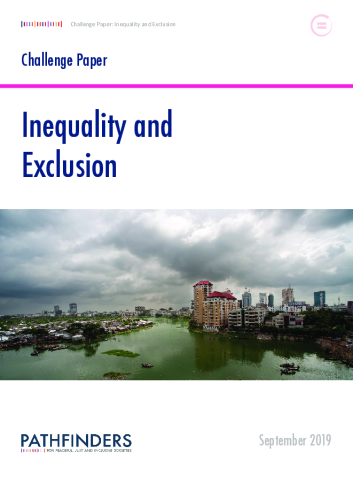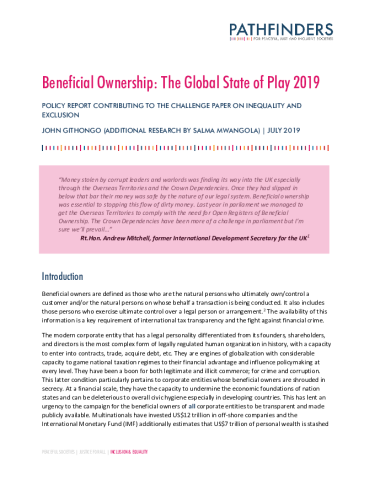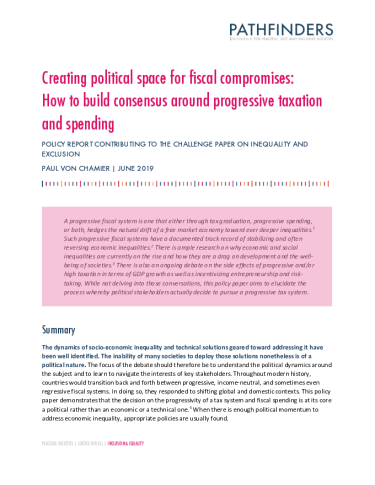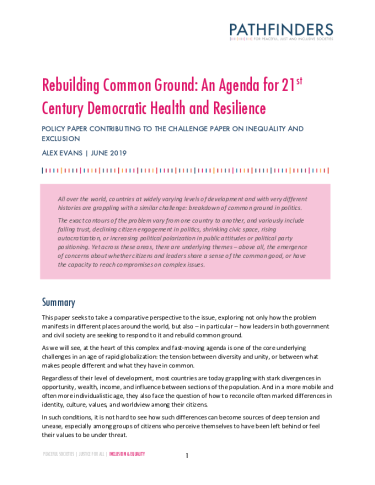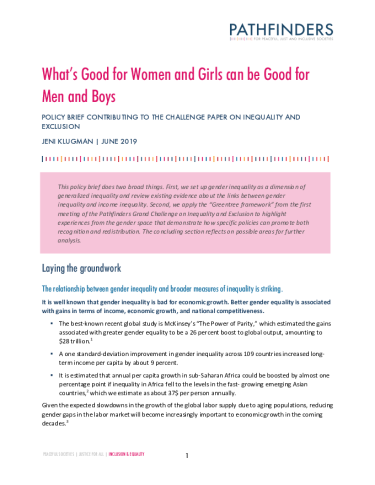Inequality and exclusion are among the most pressing political issues of our age. They are on the rise and the anger felt by citizens towards elites perceived to be out-of-touch constitutes a potent political force. Policy-makers and the public are clamoring for a set of policy options that can arrest and reverse this trend. The Pathfinders’ Grand Challenge on Inequality and Exclusion seeks to identify practical and politically viable solutions to meet the targets on equitable and inclusive societies in the Sustainable Development Goals. Our goal is for national governments, intergovernmental bodies, multilateral organizations, and civil society groups to increase commitments and adopt solutions for equality and inclusion.
Read a short brochure about the Grand Challenge.
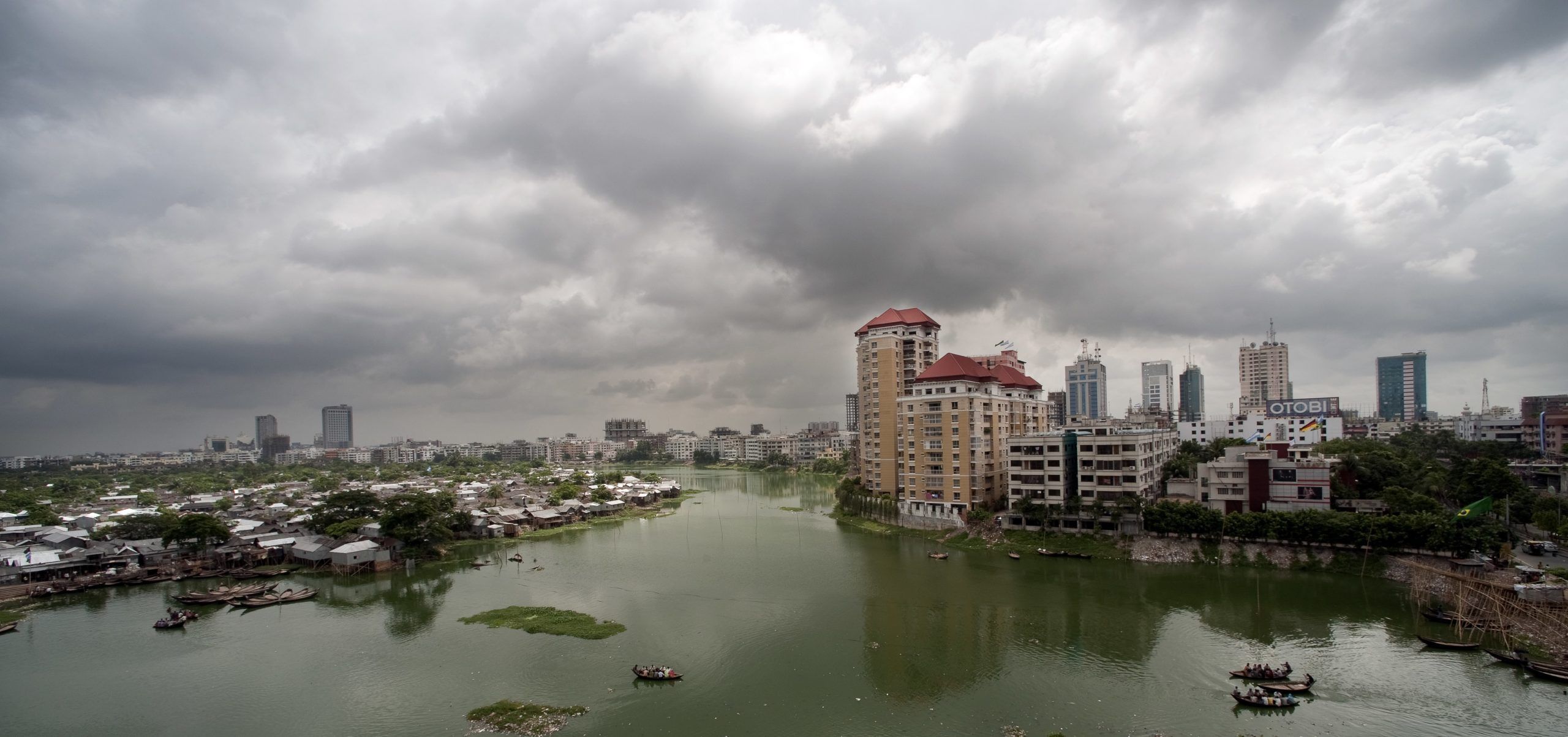
This challenge paper is an output for the Grand Challenge on Inequality and Exclusion, an initiative of the Pathfinders for Peaceful, Just and Inclusive Societies, and was produced through a broad consultative process with governments and civil society partners.
Read the full Challenge Paper: Inequality and Exclusion
The challenge paper does not replicate the many good analyses available from partners on contemporary trends in inequality and exclusion. The comparative advantage of this initiative comes through its strong links with government partners and its determined focus on solutions. Solutions must be grounded in good analysis, however, and some of the challenge areas which provide the backdrop for solutions we suggest include the following:
- Inequality within countries has increased over the last three decades, in all regions; efforts to promote inclusion of identity groups (gender, ethnicity, national origin) have stalled. The main SDG indicator for measuring inequality is not adequate for its purpose: in particular, it fails to capture existing inequalities and disparities between groups and ignores the rapidly increasing income and wealth levels of the upper echelons of society.
- Anger at inequality has also increased. It often relates to a strongly held perception of being disrespected as well as tangible material manifestations of inequality. This feeling is captured by the concept of “hogra” in North Africa and illustrated by the resentment of the characterization of certain segments of society as “deplorables” in the US.
- To reduce inequality and inclusion in practice, solutions are required in the following areas: Combating harmful concentrations of political power, distrust in institutions and polarization
- Promoting spatial equality and inclusion (citizens experience dramatic differences in prospects depending on where they are born or grow up)
- Strengthening social protection and social services
- Providing space for fiscal compromise (tax, expenditure, action on corruption), where those who benefit the most financially from current economic trends contribute more to public investment and the common good
- Promoting new labor and ownership models to address technological substitution and informalization of work
- Ensuring policy coherence and agreement between the objectives of addressing generalized inequality and promoting inclusion of historically disadvantaged groups, including gender, race, etc.
Consultations carried out over the last six months have indicated that three further areas that were identified at the beginning of the initiative – corporate taxation, international migration, and shared asset programs – also merit further work and attention. Although not explored in this iteration of the challenge paper, these topics will be pursued in detail in future versions.
We use a well-established “redistribution and recognition” framework to identify solutions in these areas. The framework has the merit of encompassing multiple dimensions of inequality which are distinct and yet related: those pertaining to material opportunities and all that these can buy (distribution), as well as those pertaining to status, esteem, and perceptions of worth and respect (recognition). Recognition spans both rights and subjective experience: not only whether my legal rights as an equal citizen are respected, but also whether I am treated with equality and dignity in everyday life, in a doctor’s office, a supermarket, a bus or a police station. The framework argues that recognition is an important part of the solution, but must be underpinned by tangible material changes; similarly, that material changes, without corresponding changes in delivering a sense of dignity and belonging are insufficient.
The main body of the paper has six sections outlining ideas for solutions that merit further research: political, spatial, social, fiscal, technological in relation to the future of work, and linking socio-economic class and identity. The paper concludes by drawing together its research findings within the framework of the broader Pathfinders’ initiative on Peaceful, Just and Inclusive societies and signposts the future direction of work for the Grand Challenge on Inequality and Exclusion.
